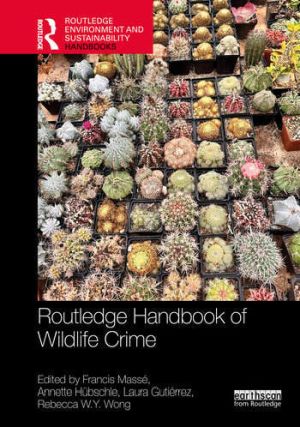
The Routledge Handbook of Wildlife Crime provides a comprehensive and state of the art overview of wildlife crime in its various forms.
The effects of wildlife crime and over-exploitation are contributing to the possible extinction of one million species. These activities also harm human and non-human animals, ecosystems and communities. To understand and tackle these issues, this handbook presents critical approaches to the study of wildlife crime grounded in empirical, methodological, and conceptual perspectives. Curated for an international audience of researchers, practitioners and policy-makers its contributors are drawn from diverse disciplines, backgrounds, and geographies. The handbook addresses recognised challenges associated with wildlife crime, including transnational security, the role of corporations, legislative frameworks and enforcement strategies, as well as broader concerns related to conservation, sustainable development, socio-environmental harm, and well-being. Importantly, it also delves into emerging areas, such as gender dynamics, digital markets and social media, social inequality and the marginalisation of vulnerable groups, and moral philosophy and ethics. This handbook equips readers to understand and respond to the multifaceted challenges of wildlife crime in the 21st century.
The Handbook of Wildlife Crime will be of great interest to students and scholars of wildlife crime, wildlife management and conservation, environmental crime, and green criminology more widely. The book will also be of use to practitioners and policymakers involved in developing and implementing strategies to reduce wildlife crime.